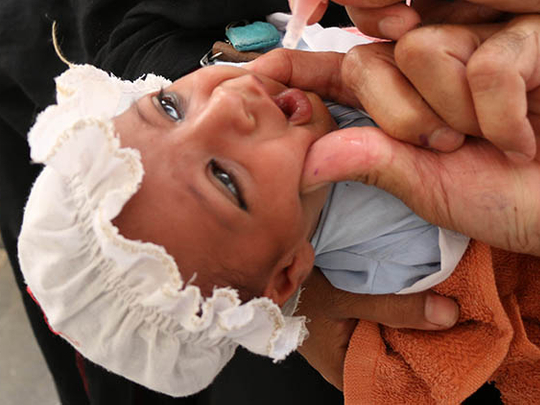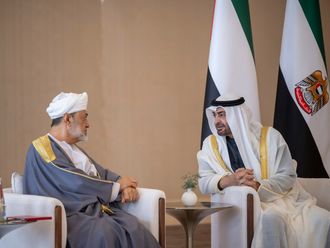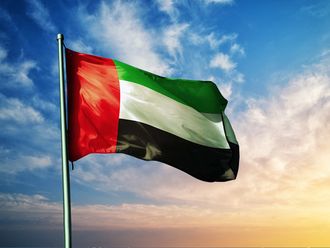
Islamabad: The UAE vaccinated more than 13.2 million children in Pakistan against polio between June and September as part of a campaign set up following directives from President His Highness Shaikh Khalifa Bin Zayed Al Nahyan, on an initiative by General Shaikh Mohammad Bin Zayed Al Nahyan, Abu Dhabi Crown Prince and Deputy Supreme Commander of the UAE Armed Forces.
The effort is part of the UAE government’s 2013 pledge of Dh440 million to support global efforts in eradicating polio by 2018, with a specific contribution towards Afghanistan and Pakistan, according to the UAE Pakistan Assistance Programme (UAE PAP) in its announcement of the final results of the massive immunisation drive.
During the UAE’s four-month effort to combat the deadly infectious disease, 13,238,701 Pakistani children were vaccinated, of whom 10,235,995 were in 25 areas of Khyber Pakhtunkhwa province and 3,447,706 in the tribal regions, said Abdullah Khalifa Al Ghafli, Director of the UAE PAP, adding that the campaign was carried out on schedule and accompanied by an educational campaign about the disease.
As of October 22, 2014, Pakistan reported 210 cases of paralysis caused by wild poliovirus in 2014. This is the highest number of cases on record through October in any year, and accounts for more than 85 per cent of all cases worldwide, according to the Global Polio Eradication Initiative, a public-private partnership led by national governments and spearheaded by the World Health Organisation (WHO), the US Centres for Disease Control and Prevention (CDC), the United Nations Children’s Fund (Unicef), and other agencies.
In September alone, more than 5.2 million children were vaccinated against the disease in 11 areas of Khyber Pakhtunkhwa province and some 2.4 million children in the tribal regions, Al Ghafli said.
UAE PAP carried out the massive immunisation drive in cooperation with the Pakistan army and ministry of health, the WHO and regional governments.
Programme officials said that between 7-19 June, nearly five thousand teams worked intensively in nine areas in Khyber Pakhtunkhwa province and in 12 areas in tribal regions, to vaccinate more than two and a half million children under five years old against polio at health centres in local communities and using mobile units which travelled to remote areas.
On April 24 2013, one day ahead of the Global Vaccine Summit in Abu Dhabi, Shaikh Mohammad pledged a donation of Dh440 million to support global efforts to eradicate polio by 2018.
As he announced the pledge, Shaikh Mohammad said: “Saving generations of children from preventable diseases is an humanitarian initiative that can only be achieved through global collaboration. Under the leadership of Shaikh Khalifa, the UAE strives to engage in global partnerships that solve these significant international issues.”
Al Ghafli, Director of the UAE Pakistan Assistance Programme, said the polio vaccination campaign further recognises UAE’s humanitarian efforts under the wise leadership of Shaikh Khalifa and proves that the country’s initiatives to assist poor countries facing serious humanitarian conditions contribute to the effective building and development of communities for a brighter future.
He described the campaign as an “exceptional success”, not least since remote areas pose a large challenge for the effort to erase polio in Pakistan – 95 per cent of the country’s polio cases in the past six months were reported in the Khyber Pakhtunkhwa region. “All previous local and international polio vaccination campaigns failed to reach these areas,” he added.
Al Ghafli noted that the ongoing UAE polio campaign has overcome geography, which posed a serious challenge, as all previous local and international polio vaccination campaigns failed to reach these areas, which accounted for 95% of Pakistan’s polio cases in the past six months, resulting in the wider spreading of the disease into other areas.
Al Ghafli also noted that sound planning and well-organised implementation were instrumental in the success of the campaign, which received a wide response from the local communities and regional governments who reiterated their confidence in UAE and the humanitarian initiatives launched by its leadership for the good of their children.










